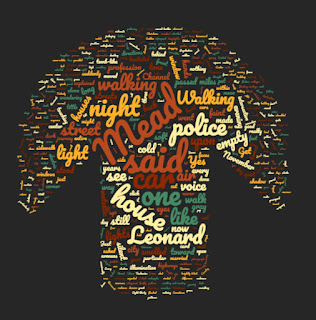Technically, it's against school policy for a teacher to lock students out of the classroom. But I didn't lock the door. I didn't even make the policy.
It's easy to forget these days, but the classroom can be a difficult place to concentrate. People show up late, and on many occasions someone interrupts class by running errands for teachers and administrators, or yelling outside, or setting off a fire alarm. That's apart from all the students around you playing with their phones or trying to get your attention because they forgot to bring their [pencil/ pen/ notebook/ snack/ cosmetic product] to class.
During the first ten minutes of class, students write in their journals (just like you're supposed to be doing each day at home), and these types of interruptions were making it hard to concentrate. I started hearing about it from students who were getting annoyed with their colleagues. As one student put it rather loudly from across the room, "Dr. Preston, writing in my journal is the only thing I like about school -- can you please tell Juan to shut the f**k up?!?"
So we had a conversation. Right around that time, I took my family to see Les Misérables at the Pantages Theater in Los Angeles (in case you missed that long link, I posted pictures and descriptions of our experience on a course blog HERE).
One way you know you're at the Pantages Theater -- or the Hollywood Bowl, or anywhere else where the game is truly bigger than the players -- is that if you don't enter the theater on time, you don't enter the theater. If you're late, you have to wait outside until the next break in the action. Then, the ushers will show you to your seats without disrupting the performance or the audience.
I shared this with the students, and I asked them what they thought of the idea.
Some didn't like it: "Hey, the people paid for their tickets, they should be able to go in whenever they want!" "Yeah, what if they got caught in traffic? That's not fair!"
Before I could follow up, other students chimed in: "They paid for a performance that started at a certain time. They knew that for months and they paid money for it. They knew all along that's what they were doing that day, so they should've planned ahead so they could get there on time." "They paid to see the show, not for the right to interrupt it and block everyone's view while they waddled down the row to their seat." "You asked about traffic? What, like their own personal traffic? Because everyone else drove the same roads to get there, and they managed to be in their seats when the show started."
You can guess who won that argument/ search for truth. At the end of each class period that day, students voted unanimously to create a new policy for themselves. If someone was late to class, no one would get upset -- life happens -- but that person would respectfully wait outside so that we could center ourselves ...
(to be continued)


No comments:
Post a Comment